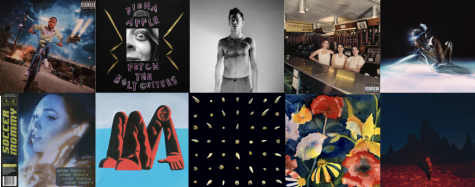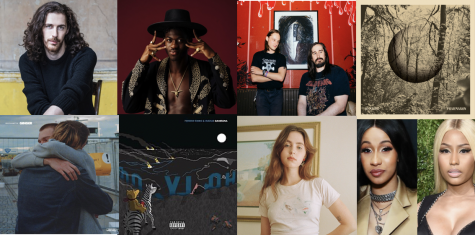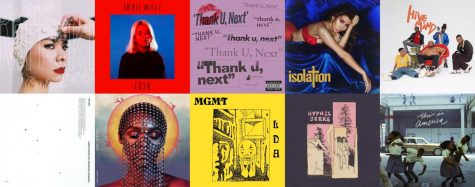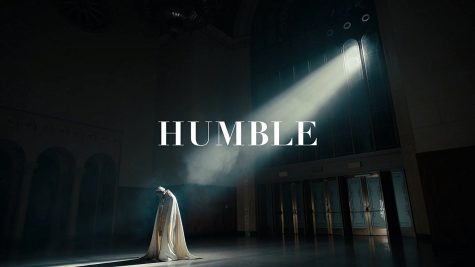WVAU Top Music 2013: #6
December 26, 2013

#6 ALBUM:
My Bloody Valentine, mbv
åÊ
There was hardly a review of My Bloody Valentine’s long-awaited third LP that didn’t pit the record off against massively influential predecessor Loveless. How could one not? Shoegaze was a lightning rod in the early 90s, and Loveless was its genre-defining album. And despite the genre’s at times humorous connotations, My Bloody Valentine managed to strike exactly the right balance between pop melody, post punk/guitar-band distortion, literal shoegazing concert shyness, and in-studio technical genius unlike that of their peers. Further, rather than flaming out or exhausting their welcome, the band left on a high note, re-mastering their album, releasing a string of Loveless-related singles LPs, but never following their most popular work.
But perhaps the most rewarding reason for listeners that this comparison was made almost in lockstep by music critics, is that after 22 years, it’s the only shoegaze record that measures up. There’s a palpable continuity; the first strums of Kevin Shields’s reverb-washed guitar on album opener “She Found Now,” have a similar texture and consistency to the last strums on “Soon.” Tracks like “Only Tomorrow,” and “If I Am,” are reminders of the band’s strengths; both possess cooing vocals, almost inaudible at times, and propulsive drums, layered under thick guitars. There are new tricks too: “New You” sheds the distorted sheen of Shields’s guitars, pulling Belinda Butcher’s voice out front for cycling harmonies, as well as the most straightforward verse-chorus vocal arrangements on any My Bloody Valentine song on memory. Album closer “Wonder 2” employs jungle/drum ‘n’ bass percussion, which Shields has always listed as an influence, but rarely has included in his music so blatantly. Finally, mbv contains the element that’s had fans turning up the band in the headphones or speakers for years: surprise and discovery. Listening to the record rewards the attentive listener: details like an imprecise drum hit, a particular section where the guitars feel slightly crunchier, are hidden deep in the mix, but always feel deliberate.
While there will never be another Loveless (nor should there be), mbv reminded us that hype, context, and previous records only matter in between LPs. Luckily, for the first time in 22 years, My Bloody Valentine fans didn’t have to worry about either: they had one of the best records of the year.
åÊ
åÊ
By Maxwell Tani
åÊ

#6 SONG:
Autre Ne Veut, “Play By Play”
åÊ
Autre Ne Veut’s Anxiety opens with a grand synthetic trickle and a raspy utterance of “and I said, baby.‘” Such we are introduced to Arthur Ashin’s candid pop symphony. Clearly influenced by 80s R&B and his college years with Daniel Lopatin (Oneohtrix Point Never), Ashin’s production is entirely entrancing. Both familiar and jarring, each note feels meticulously crafted to be belted out or alienated by.
This feeling is further driven by the imagery of the initial lyric video that premiered “Play By PlayÛ. In it, the lyrics are shown on a dated karaoke machine, with longer verses being cut off due to size on the monitor. These moments are a perfect marriage of form and content with each distorted line of text echoing Ashin’s stream of consciousness lyrics.
No image in music has stuck with me more this year than “I just called you up to get that play by play (x3) (don’t ever leave me alone).” displayed on a tiny television monitor. This precise moment captures everything great about Autre Ne Veut’s Anxiety. The repetition of the chorus showcases how catchy and well crafted the songs are, while the cowering “(don’t ever leave me alone)” may be the most accurate portrayal of Ashin’s vocals; unafraid to be belted out, but filled with anxieties, depression, fears, and emotion.
By the song’s closing, I’m enwrapped in Ashin’s surreal karaoke lounge. It’s a strange one, acknowledging the past with its instrumentation, but entirely forward looking in its construction. It’s a place where one is fully aware of their self doubts and anxieties, but speaks freely about them. It’s a place where you’d be just as easily dancing as you’d be crying (most likely simultaneously). For a song with this much power, it is criminal to not acknowledge it as one of the best of 2013.
åÊ
åÊ
By Mike Creedon














